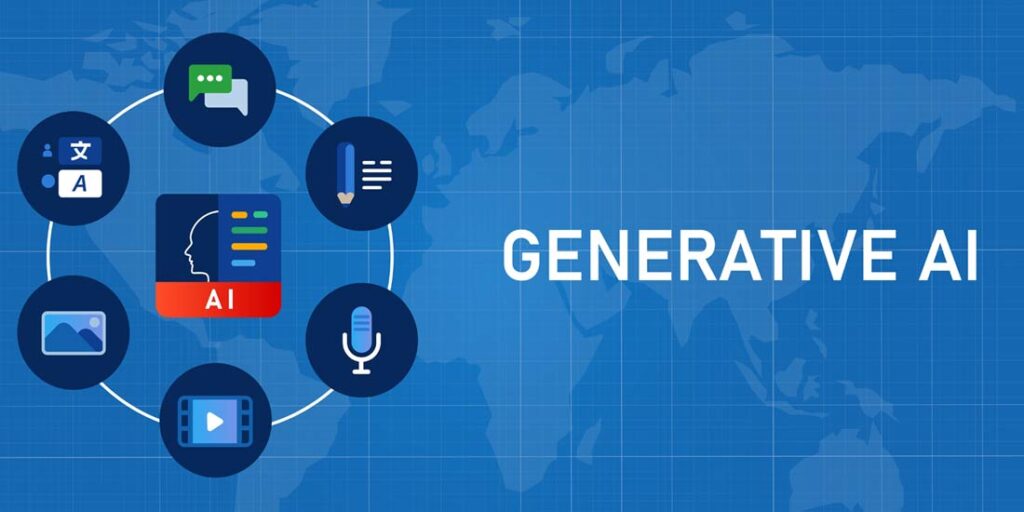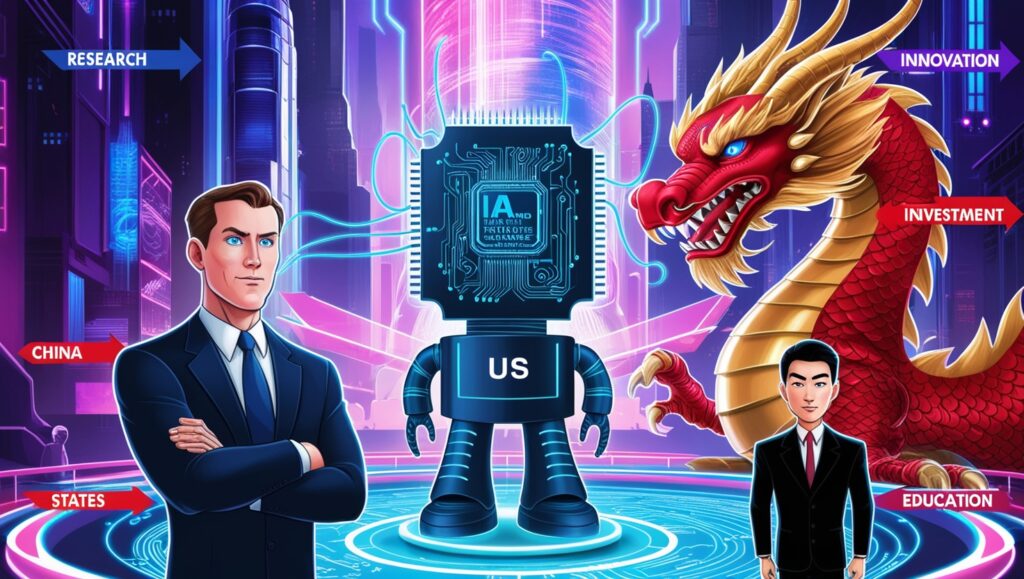The big tech story of 2023 was generative AI. However, what actual effect, if any, did it have on businesses?
In spite of the excitement surrounding new technology, the majority of firms are still figuring out how to really benefit from it. However, recent poll data suggests that generative AI may be having an unexpected impact on culture. Regarding the question of whether they had created an internal data and analytics culture, which has yielded resolutely low results in recent years, respondents specifically noted notable changes. We think that generative AI experiments were a significant factor in those numbers.
One of us, Randy Bean, has been polling large company data and IT executives for the past 12 years to find out how they feel about data, analytics, and artificial intelligence. When asked if they have developed a data-driven organization or a data and analytics culture, firms have generally shown little improvement in recent years, and occasionally even a decline. Whether a firm had “established a data and analytics culture,” for example, had fallen from 28% in 2019 to 19% in 2022 and 21% in 2023.
This year’s Wavestone (formerly NewVantage Partners) poll of data leaders revealed a startling shift. From 21% to 43% of respondents, more people said their companies had “established a data and analytics culture.” The organizations that had “created a data-driven organization” doubled from 24% in 2023’s survey to 48% in 2024’s. (The surveys aggregate data gathered in the preceding year.) This was a much greater improvement than it has ever been in the survey’s history.
The Wavestone poll for this year revealed continuity with previous years’ results, with this tendency being the largest surprise: Companies are spending more on data and analytics, according to a significant majority of company data leaders, and they believe their efforts are yielding quantifiable returns. Instead of making defensive investments in risk and regulatory compliance, the majority of these leaders are primarily focused on offensive investments in development and innovation. These tendencies have been there for a number of years and usually grow more gradual with time.
Leaders should be aware of the following.
Generative AI to the Cultural Rescue
It seems that new technology, particularly cutting-edge technology that piques people’s interest like generative AI, can help spark a data-oriented society, even though cultural change usually necessitates human engagement. The increase in positive comments regarding culture appears to be mostly related to generative AI, considering the 2023 survey was conducted shortly before ChatGPT was revealed. At least according to data leaders in large organizations, generative AI appears to have spurred a shift in culture.
We anticipated, and were not shocked, to learn from the study that a sizable majority believe generative AI to be the most revolutionary technology of our generation, that investing in it is a top organizational priority, and that they are expanding their investment. Additionally, they firmly believe that their companies require rules and safeguards to control the application of generative AI, albeit 63% claim that these are currently in place. But how might generative AI help foster a data-driven culture?
We can guess on a variety of mechanisms. For example, it’s possible that widespread media coverage of the technology encouraged many others to try with it. The majority of firms in the poll (60%) are still in the experimental stage with gen AI, and when asked what the key benefit of the technology is, “exponential gains in personal productivity” had the most common response (49%). The widespread examination of how data and AI may be applied to work is undoubtedly a cultural shift.
Another reason is that generative AI has given people the impression that long-anticipated digital change is within reach. We’ve already stated that the majority of data leaders in the Wavestone study feel that gen AI is a revolutionary technology, and in another, larger survey that we performed, 80% of data leaders expected it to someday revolutionize their organization’s business environment. Although data executives are likely more aware of generative AI than other employees, their enthusiasm tends to spread. A McKinsey study of CEOs conducted early in 2023 discovered that the “rise of disruptive digital technologies” would have the greatest influence of any other issue in 2023.
Of course, for better or worse, media hype can also have an impact on culture. AI has been a hot topic in the media in 2023, especially generative AI. Yahoo Finance rated it the #1 business story of the year. The popularity of generative AI may experience a backlash, or to put it in the words of Gartner, it may enter a “trough of disillusionment.” This suggests that its influence on culture might only last a short while. However, we believe that generative AI will have a real, long-lasting influence on businesses—not just as marketing gimmick.
Not the First Time
New technologies have previously had a significant effect on corporate culture. Dating back over a century, a number of information technologies have had an impact on the cultures of the businesses that have adopted them. For instance, the implementation of large-scale, centralized enterprise resource planning systems increased interest in reporting and monitoring of operational and financial performance as well as centralized decision-making. Organizational communication became more synchronous and real-time with the advent of email, texting, and online collaboration technologies. Online e-commerce, especially in consumer-focused enterprises, has transformed the way people buy and sell.
Easy-to-use (low code/no code) technologies have made it easier for anyone to construct applications, automations, and even data science models more recently. Naturally, data-driven cultures and decision-making were influenced by big data and analytics, and this had an effect on organizational culture in certain cases. Even if we don’t believe that companies should only use newly introduced technology to propel their shift to a data-driven culture, they do appear to have an impact.
What to Do Next
What steps should companies take to optimize the cultural influence of generative AI? While employee experimentation on a personal level is still crucial, larger, more systematic organizational trials about optimal technology use may also prove beneficial. Additionally, private generative AI systems trained on an organization’s content may prove beneficial for staff members. These use cases typically have an enterprise-level focus and are applied to knowledge management.
However, significant economic benefit from production deployment and long-lasting behavioral and cultural change cannot be achieved by experimenting alone. Merely experimenting with technology on an individual basis could result in transient changes. Businesses must also implement Gen AI technology in production. As to the Wavestone poll, an only 5% of respondents have implemented the technology in large-scale production to date. Planning for production deployment, upskilling potential users, revamping business processes, and integrating with current technological infrastructures are all necessary for this step, provided that the experimental results are positive.
Education is still a powerful tool for transforming societies, and there is a dire need for education on generative AI. In the past, a lot of education with a digital focus has been surface-level; however, for generative AI education to make an impact, it needs to be deeper. The myriad uses for which it can be put to use, how it differs from other types of AI, and how it ought to be managed are all topics that many senior executives and board members are ignorant of. Considering how widely applicable the technology is to various business sectors, practically all organizations ought to offer this kind of education at all levels.
Leaders are currently considering generative AI as a way to enhance current procedures, as is the case with many emerging technology. But only if leaders aim higher and imagine new tactics, business models, and productivity levels can this technology’s potential to transform enterprises and their cultures be realized. This technology has the potential to be revolutionary, and it must be applied to change daily labor, business, and human-machine interactions. This will necessitate senior executives of a company engaging in significant strategic thinking and sponsoring experiments, as well as educating staff members and executives about the capabilities of the technology and bringing the most promising experiments into production. If that work is completed, we anticipate that generative AI will continue to dramatically alter the data-oriented cultures of businesses.








